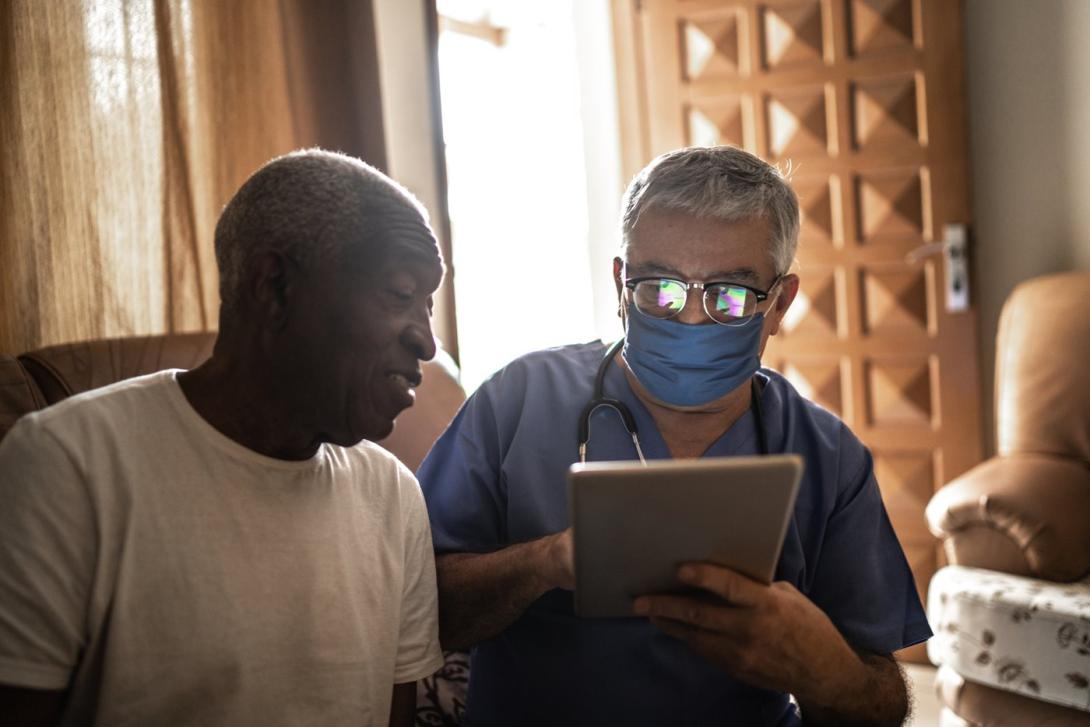Our News
New Science 37® Report: Nearly 100% of Biopharma Executives Expect Clinical Trial Decentralization to Increase Yet Lack Internal Capabilities to Operationalize

As decentralized clinical trial technologies and methods rapidly expand, advances expose necessary focus on data quality, stakeholder orchestration, and data harmonization.
Science 37, pioneer of the Decentralized Clinical Trial Operating System™ (DCT OS), today unveiled the DCT OS Report, which highlights the growing trend of decentralization in research and the requisite Operating System needed to effectively orchestrate stakeholder workflows, confidently generate evidence and seamlessly harmonize data for clinical and real-world studies.
To enable study continuity during the pandemic, approximately 55% of active ongoing trials transitioned to remote or virtual execution[1]. The DCT OS report, conducted by third-party Industry Standard Research (ISR), found nearly every biopharma executive surveyed expected the industry to not revert entirely back to a site-based model after advances made during the pandemic. Instead, more than 80% said their company would be conducting some element of decentralization this year, with more than 60% citing a lack of internal capability to effectively operationalize any component of a decentralization clinical trial.
“This survey showcases the advances of the biopharmaceutical industry to rapidly adjust during the pandemic and more quickly adopt the patient-centric model we have been advocating since our founding in 2014,” said David Coman, Chief Executive Officer of Science 37. “It’s exciting to see, and yet it highlights the urgent need for best-in-class technology that can enable evidence generation and connectivity to an ecosystem of comprehensive networks of patients, telemedicine investigators, mobile nurses, and remote coordinators able to harmonize data from a variety of sources.”
In ranking a list of five factors for organizations to consider when determining whether to decentralize parts of a clinical trial, respondents also said that “Quality of Data” and “Regulatory/Compliance Risk” are the two most important factors, respectively.
“This study also signals strong agreement that DCT technologies and methodologies are here to stay, and in fact, new and more agile clinical trials are likely to expand in the future,” said Coman. “The focus on data quality and growing need to expedite clinical research timelines necessitate the activation of stakeholder networks on a seamless, unified Operating System.”
Study Methodology: Data were collected in a web-based survey of biopharmaceutical executives between January 11 and January 15, 2021. Participants represented companies of different size (Emerging: 39%, Large: 37%, Mid/Small: 24%); were dispersed geographically (North America: 56%, Europe: 37%, Asia/Pacific: 7%); and held various roles directly involved in clinical research operations (Executive Management: 41%, Clin Ops: 22%, Medical: 18%, R&D Management: 17%). The study was commissioned by Science 37 and conducted by Industry Standard Research (ISR), Raleigh, NC.
Download the DCT OS Report.
About Science 37
Science 37 enables universal access to clinical research—making it easier for patients and providers to participate and accelerating the development of new and innovative treatments that impact patient lives. With the industry’s first and only technology-first Decentralized Clinical Trial Operating System™ (DCT OS), we enable workflow orchestration, evidence generation and data harmonization on a unified, seamless platform—configurable to enable any study and fused with our expansive networks of telemedicine investigators, mobile nurses, remote coordinators, patient communities and connected devices.
Learn more at Science 37, and follow Science 37 on Twitter, LinkedIn and Facebook.
MEDIA INQUIRIES:
Drew Bustos
VP, Marketing & Communications, Science 37
Margie.Kooman@science37.com
Science 37
984. 377.3737
INVESTOR RELATIONS:
Caroline Paul
Gilmartin Group
investors@science37.com